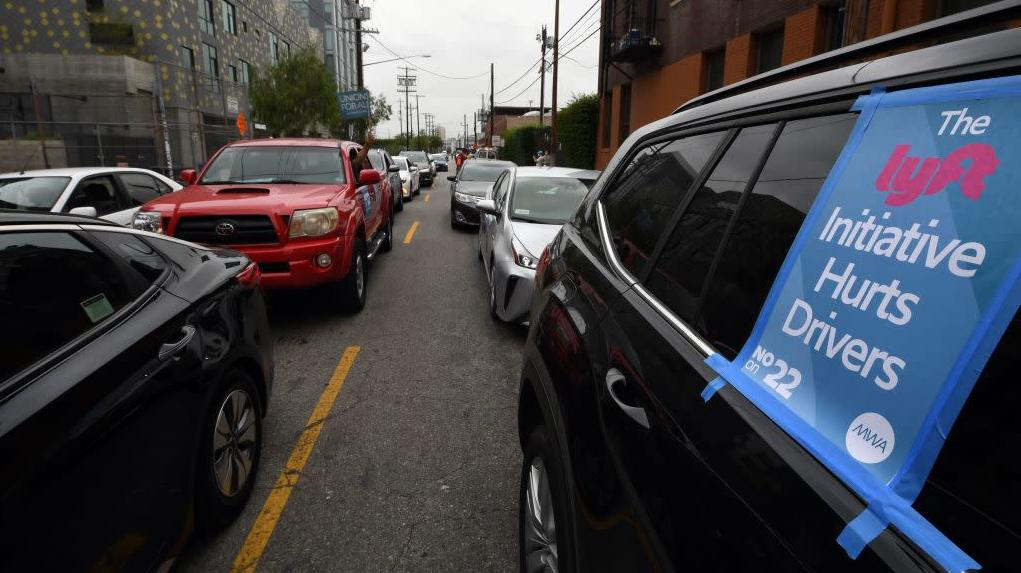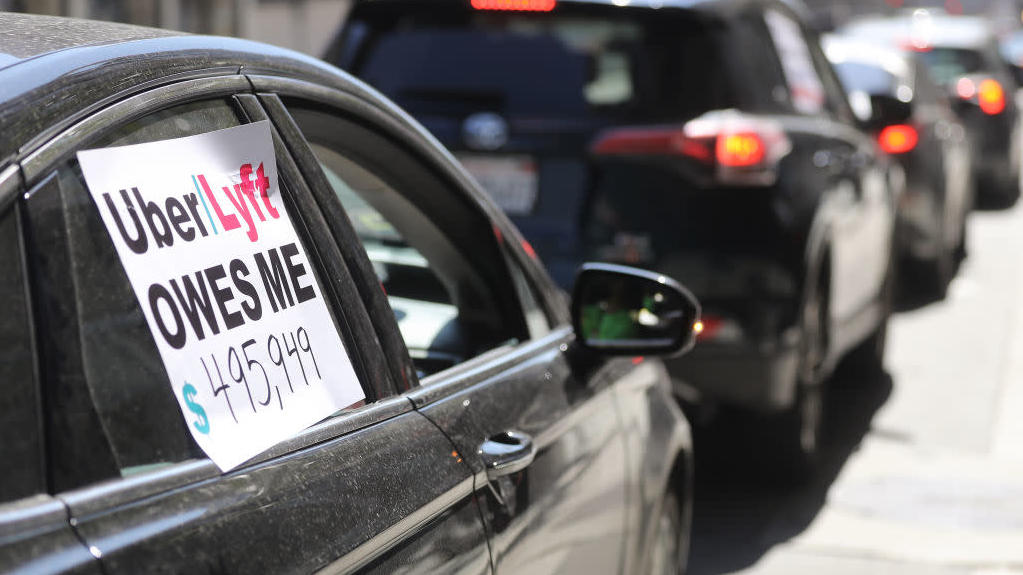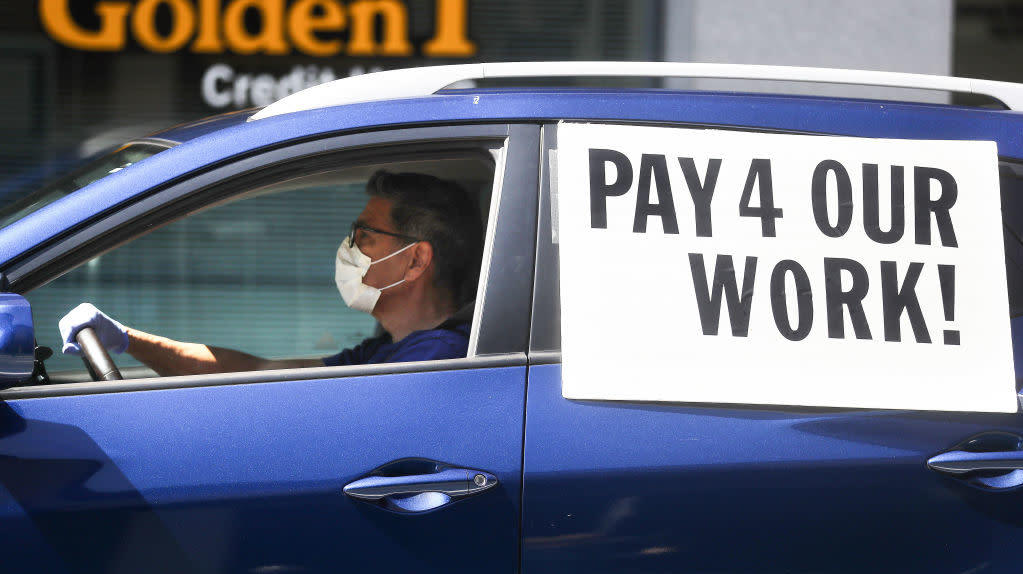The Aftermath Of Prop 22 Is Not As Happy As Big Tech Promised
In a twist that everyone except Big Tech saw coming, drivers for ride-hailing apps are reporting that no, Prop 22 did not actually improve things for them. The awful conditions they've been fighting have persisted.
To make matters worse, due to the combination of the ongoing pandemic and the effects of Prop 22 passing, their pay has decreased. And some workers have to work for as many as three ride-hailing apps in order to make any money, The Guardian reports.
This despite Big Tech insisting that Prop 22 would be good for drivers. As if that weren't enough, the apps (Uber, Lyft, InstaCart and DoorDash) threatened to take their ball and go home if they were forced to cede employee benefits and a livable wage to the workers. They claimed they could not afford to operate in California if mandated to treat people humanely.

But you know what they say: You have to spend money to make money. That's why the apps ponied up $200 million dollars on a campaign to convince citizens to vote for Prop 22.
Meanwhile, conditions for workers have gotten bad. Peter Young shared the following with the Guardian:
"It's clear that as soon as Prop 22 passed, it was open season to start cutting my pay again[.] I'm looking for other work. I can't keep doing this at this pay. I'm doing food delivery right now. Everyone is ordering food online so there's demand. It's just that what they are choosing to pay me isn't reliable any more and it's getting lower.
If you try to earn money, just purely on the delivery fee, it comes out to about $5 an hour. A good day for me is maybe earning $100 before gas and expenses off eight hours of work"
Another driver, Peter Valdez, elaborated in the Guardian report:
"I've had maybe three or four nights where I literally made $4[.] I was under the impression that I was going to get an additional 30 cents per mile after Prop 22[.] A lot of drivers were duped because they expected they were magically going to be able to qualify for benefits that the companies made it sound like they were going to pay for up front and that drivers were going to be getting reimbursement for the mileage[.]
And the ride-hailing apps insisted that they would implement fees that would go towards better pay for drivers, but that has yet to materialize. The Guardian referenced a study from the University of California, Berkeley, revealing that Prop 22 accounts for only drivers' engaged time, resulting in a guaranteed minimum wage of just $5.64 an hour.
Later in its report, the Guardian shared the following from a DoorDash spokesperson:
"We're proud that DoorDash provides flexible earning opportunities for Dashers to supplement their income, and Prop 22 demonstrates that we can pair the independence Dashers want with even greater security. Following the implementation of Prop 22, Dashers in San Francisco are making more than $39 per hour that they're on a delivery, and Dashers for the first time are able to earn money toward health insurance under this groundbreaking legislation."
And that same spokesperson claimed that the overwhelming majority of drivers work fewer than 10 hours a week "and on average Dashers deliver less than four hours per week," according to the Guardian.
The problem with that projection is sussed out in the U.C. Berkeley study. Namely, the apps are not accounting for all of the time and expense that goes into carrying passengers safely during a pandemic, for starters. Then there's also waiting time to consider.

There's a lot of prep work, such as time spent disinfecting, and expenses, including PPE purchases. But as you'd expect, the apps are not footing the bill for any of this, nor are they paying the drivers for time spent on these tasks.
Big Tech is making bad-faith arguments about the money the drivers make, using calculations that are supposed to prove drivers are making more than a livable wage and that they can't be employees because they are granted full independence.
Except that these drivers are not independent in the way that the apps claim they are. That's the worst part about all this, the part that feels most like a kick in the teeth to the drivers. The DoorDash spokesperson cites "...the independence Dashers want" as the reason Prop 22 should, and did, prevail.
The only ones who want independence are the damn app companies themselves. An employee-employer relationship is one of dependence, which is what the drivers are arguing. It's like these companies are tone deaf. They actually claim that Prop 22 is for the drivers, after all, so that they may pursue the rugged spirit of independence that makes them entrepreneurs. Give me a break!
The world in which drivers work fewer than 10 hours per week, and average four hours driving, is a fiction. The world where they make $39 an hour on DoorDash deliveries is a bedtime story the apps tells themselves. It's a fable that benefits the same people who spent $200 million dollars on a campaign to pass Prop 22, while leaving those people doing the work with $5 an hour.
